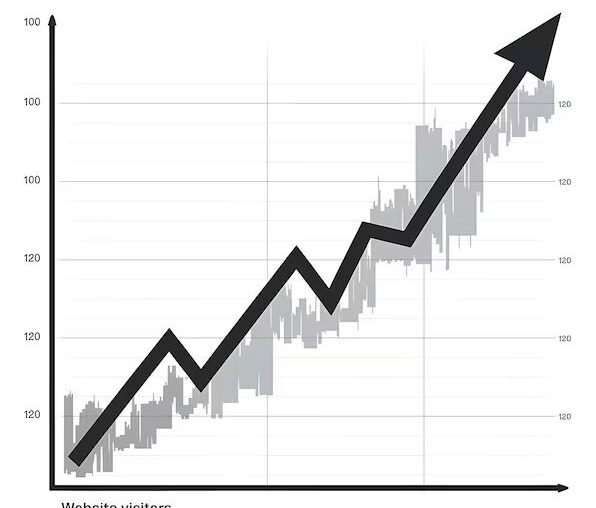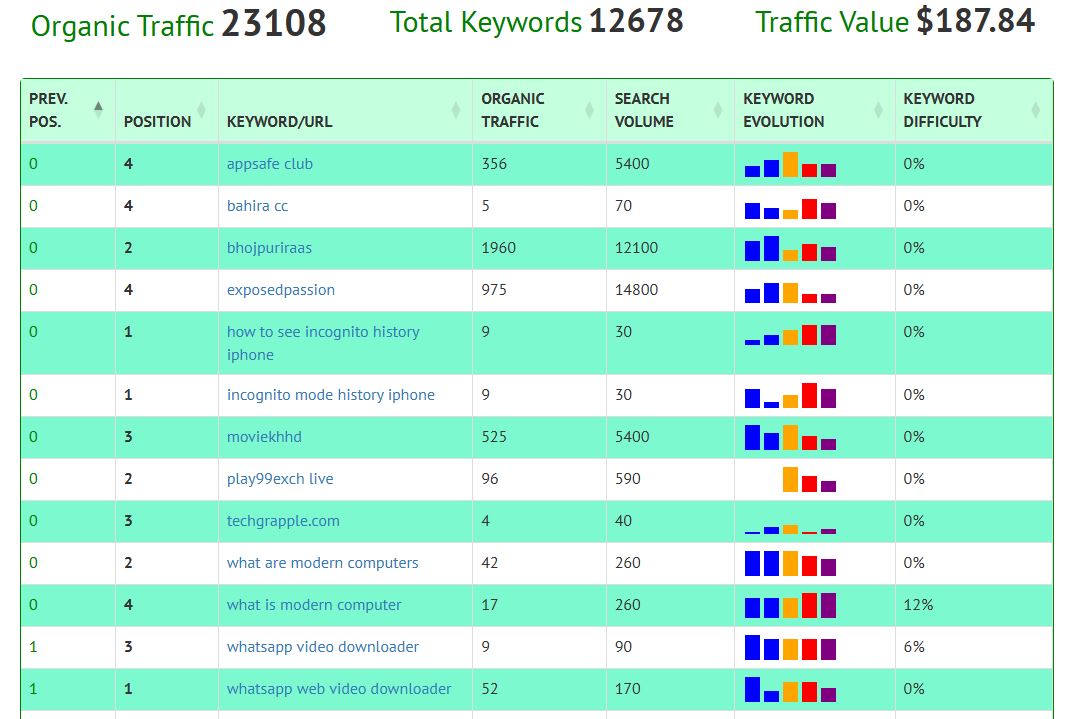Organic traffic refers to visitors who come to your site through unpaid search engine results, and monitoring this traffic can provide valuable insights into your website’s performance and overall digital marketing strategy.
Here are the top reasons why you should prioritize monitoring your website’s organic traffic.
Gauge Your SEO Performance
One of the primary reasons to monitor organic traffic is to evaluate the effectiveness of your search engine optimization (SEO) efforts. By tracking organic traffic, you can:
Measure Keyword Performance
Analyze which keywords are driving the most traffic to your site. This information helps you refine your content strategy and focus on high-performing keywords.
Identify Ranking Changes
Monitor fluctuations in your search engine rankings. Sudden drops or increases in organic traffic can indicate changes in your site’s visibility for specific keywords.
Assess Content Quality
Determine which pages are attracting the most organic visitors. This insight can guide your content creation efforts and help you replicate successful content strategies.
Understand User Behavior
Organic traffic data provides valuable information about how users interact with your website:
Analyze User Engagement
Examine metrics such as bounce rate, time on page, and pages per session for organic visitors. This data helps you understand how well your content meets user expectations.
Identify Popular Content
Discover which pages or topics resonate most with your organic audience. Use this information to create more of what your visitors find valuable.
Track Conversion Paths
Follow the journey of organic visitors through your site to see how they convert. This insight can help you optimize your conversion funnel and improve user experience.
Measure ROI of Marketing Efforts
Monitoring organic traffic is essential for evaluating the return on investment (ROI) of your digital marketing initiatives:
Compare with Paid Traffic
Assess the performance of your organic traffic against paid traffic sources. This comparison can help you allocate your marketing budget more effectively.
Evaluate Long-Term Growth
Track organic traffic growth over time to measure the long-term impact of your SEO and content marketing strategies.
Justify Marketing Investments
Use organic traffic data to demonstrate the value of SEO and content marketing to stakeholders and secure resources for future initiatives.
Identify Technical Issues
Monitoring organic traffic can help you spot and address technical problems that may be affecting your site’s performance:
Detect Crawl Errors
A sudden drop in organic traffic might indicate crawl errors or indexing issues that need to be addressed.
Assess Mobile Performance
Analyze organic traffic from mobile devices to ensure your site is mobile-friendly and performing well across all platforms.
Keep an eye on how site speed affects organic traffic and user engagement. Slow-loading pages can negatively impact both rankings and user experience.
Stay Ahead of Algorithm Updates
Search engines frequently update their algorithms, which can impact your organic traffic:
Identify Algorithm Effects
By monitoring organic traffic, you can quickly detect the effects of algorithm updates on your site’s visibility and rankings.
Adapt to Changes
Use traffic data to inform your strategy and make necessary adjustments to align with new algorithm requirements.
Benchmark Against Competitors
Compare your organic traffic trends with those of your competitors to see how industry-wide changes are affecting your market position.
Inform Content Strategy
Organic traffic data is invaluable for shaping your content strategy:
Discover Content Gaps
Identify topics or keywords where you’re not attracting organic traffic and create content to fill these gaps.
Optimize Existing Content
Use traffic data to prioritize which existing content needs updating or optimization to improve its performance in search results.
Plan Seasonal Content
Analyze seasonal trends in organic traffic to plan timely and relevant content that aligns with user interests throughout the year.
Enhance User Experience
Monitoring organic traffic can lead to improvements in overall user experience:
Optimize Site Structure
Analyze how organic visitors navigate your site to improve its structure and make it easier for users to find what they’re looking for.
Improve Internal Linking
Use traffic data to identify opportunities for internal linking that can help distribute link equity and improve user navigation.
Personalize User Journeys
Tailor the user experience based on the preferences and behaviors of your organic traffic segments.
Support Business Decision-Making
Organic traffic insights can inform broader business strategies:
Guide Product Development
Use organic search trends to identify customer needs and interests that can inform product development or service offerings.
Inform Market Expansion
Analyze geographic data from organic traffic to identify potential new markets or regions for business expansion.
Validate Business Models
For startups or new ventures, organic traffic data can provide validation of business concepts and help attract investors or partners.
Tips on SEO and Online Business


